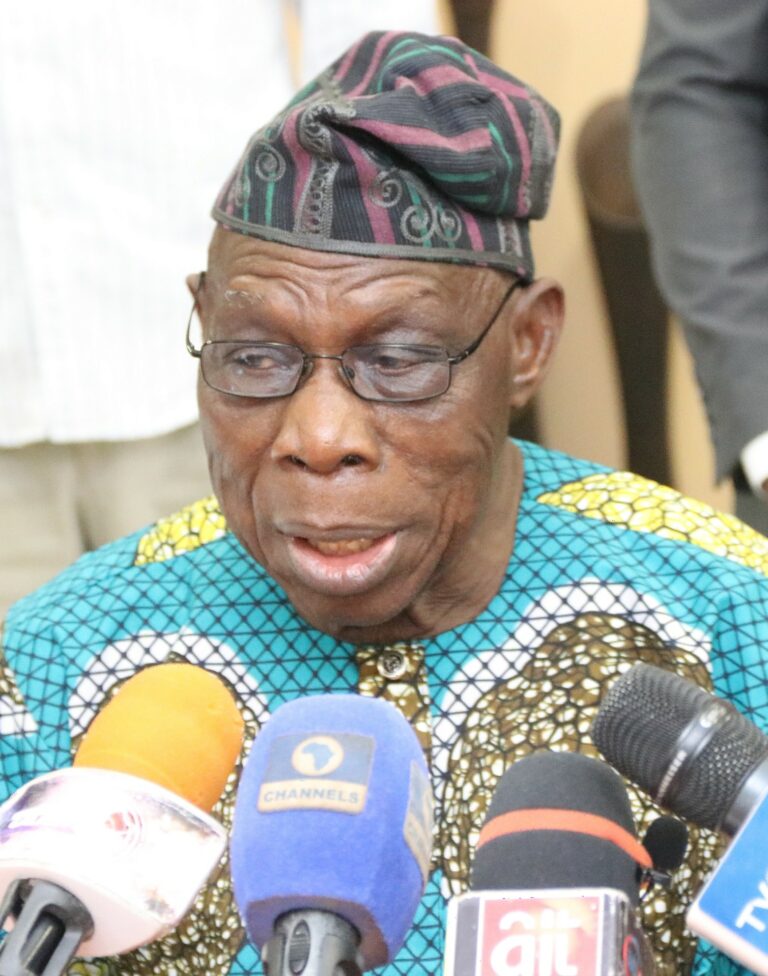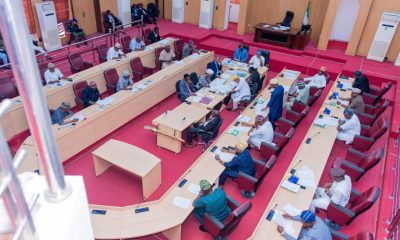News
Nigeria Nurturing The Boko Haram Of Tomorrow – Obasanjo

Olusegun Obasanjo said Nigeria is nurturing the Boko Haram of tomorrow if nothing is done about the millions of children that are not in school.
The former President stated this on Monday while speaking as the Chairman of the 2022 annual lecture of the Murtala Muhammed Foundation with the theme, ‘Beyond Boko Haram: Addressing insurgency, banditry, and kidnapping across Nigeria’.
He said, “The Nigerian population today is about 215 million and 15 million children are not in school; it doesn’t matter how we deal with insecurity, either by stick or carrot approach. Those children are the potential Boko Haram 10 years from now.
“If we don’t do anything about those children, we are already nurturing the Boko Haram of tomorrow. We need to look back and reinvent. When you look at some of the things we are doing, then you wonder why we are not succeeding. This is because we are doing the same thing all the time.
“Things that we did the last time that didn’t pay us are the same we are repeating. The idea of treating symptoms rather than the disease will not get us anywhere.
“The disease of Boko Haram and banditry are those things that people expect; they want a good life; they want to get a job; they want education; and they must be given for as long as they are denied these, they will be right to make a demand on society, which it must give to them willingly or unwillingly.”
He said: “The insecurity in the country was caused by the ease of access to weapons after the civil war, and since then, we have been unable to address the issue; it keeps getting worse.
“In 2011 when Boko Haram was just showing its ugly head, I went to Maiduguri to try and find out a little bit more about Boko Haram and to also find out what their objective was, apart from being interested in Sharia. They also complained that their followers had no jobs and stated their efforts to get something legitimate to help their members.
“In the process, the government started chasing them and gunning them down.
“What I feared at that time seems to have been happening. At that time, Boko Haram had not many external connections; the ones they had were Nigerians who had resources abroad, who were helping them. My fear then was whether we would be able to keep them away from Al-Qaeda and other international terrorist organisations.
“We seem not to have been able to do that which has made the situation worse.”
-

 Entertainment5 days ago
Entertainment5 days agoNigerian Singer, Ifunanaya, Died After Snake Bite In Abuja
-

 News5 days ago
News5 days ago20-Year-Old College Student Found Dead With Body Parts Missing In Kogi
-

 News5 days ago
News5 days agoOsun Assembly Warns UBA, Oyetola, APC Over Alleged Diversion Of Osun LG Funds
-

 News3 days ago
News3 days agoOsun Assembly Aspirant Pledges People-centred Representation For Boripe/Boluwaduro constituency


